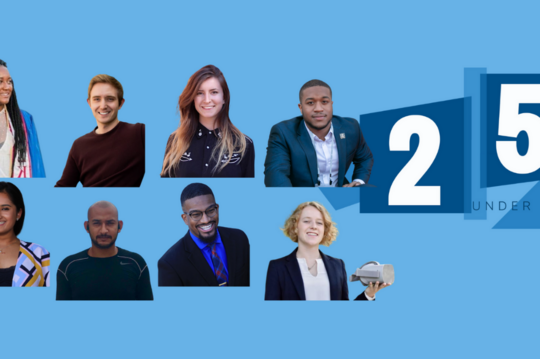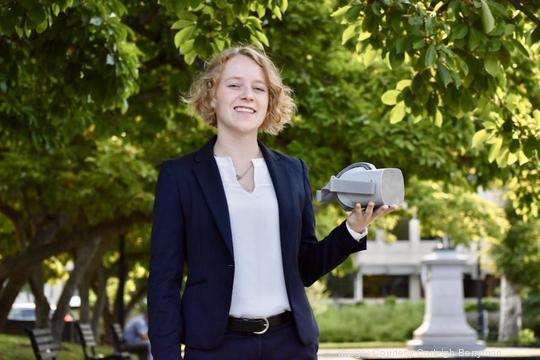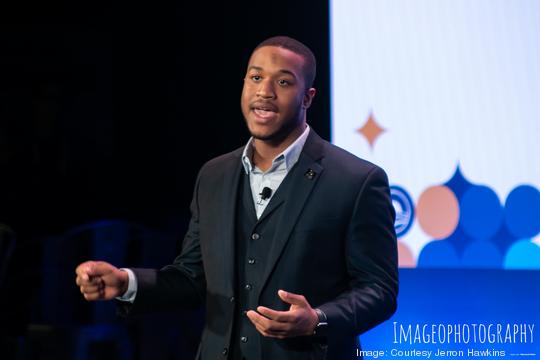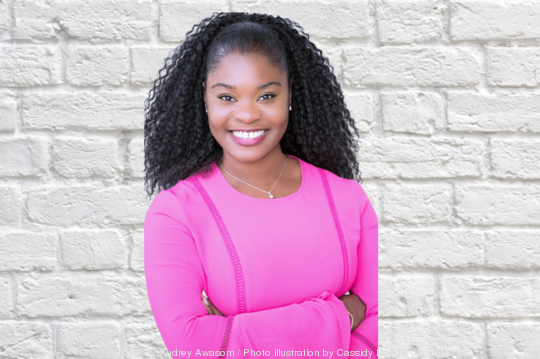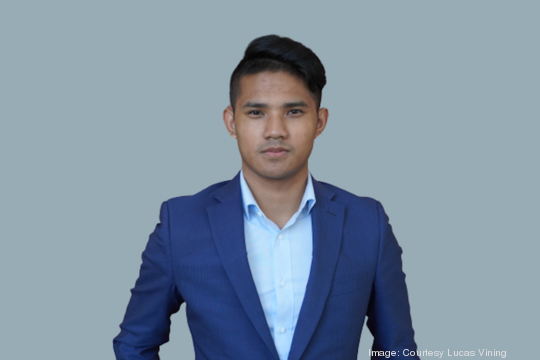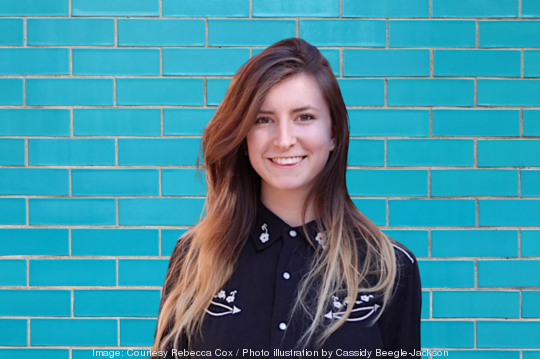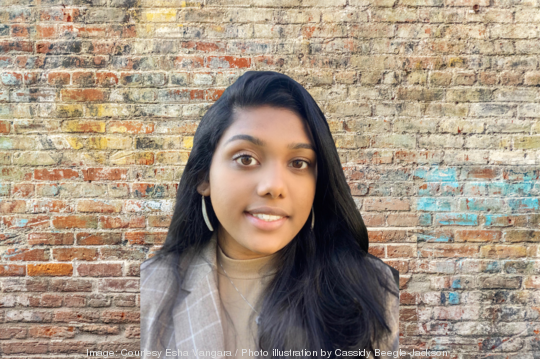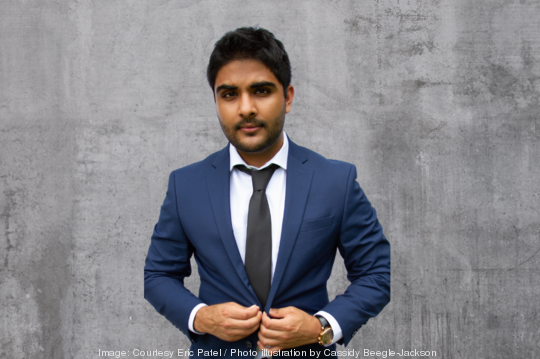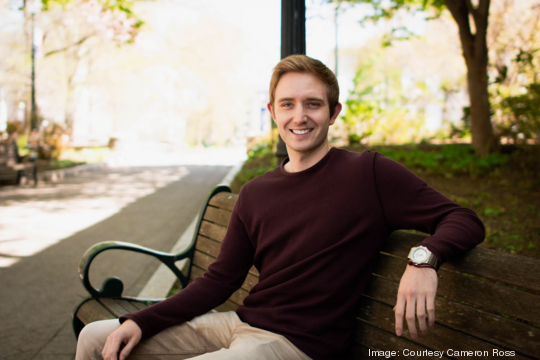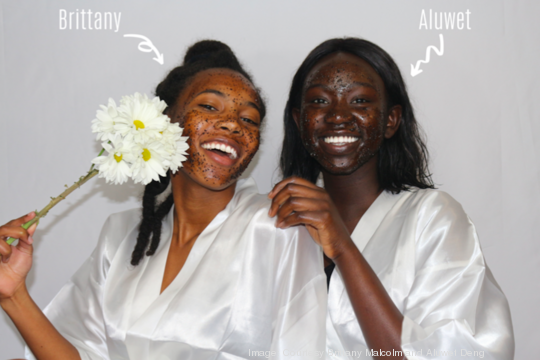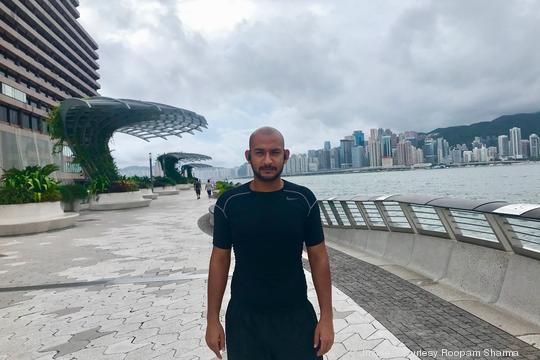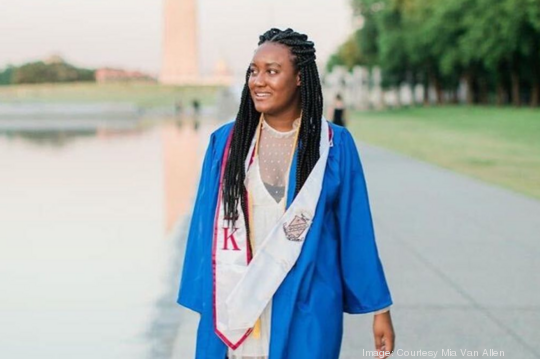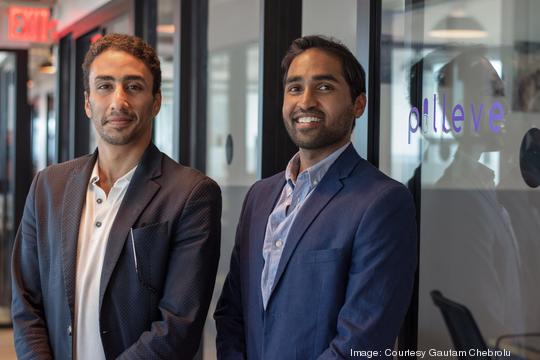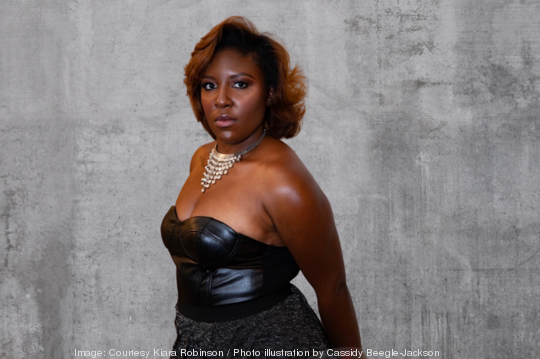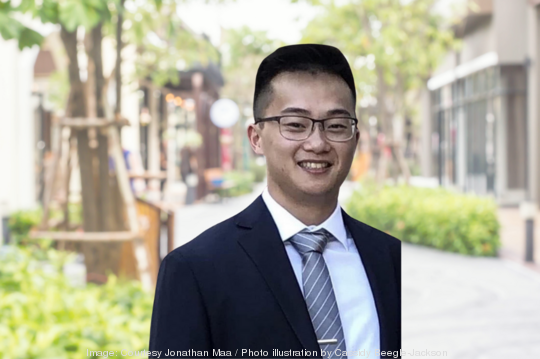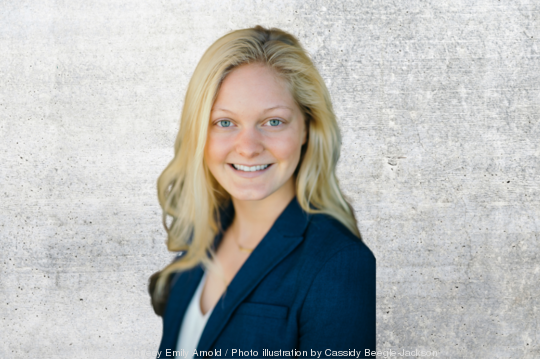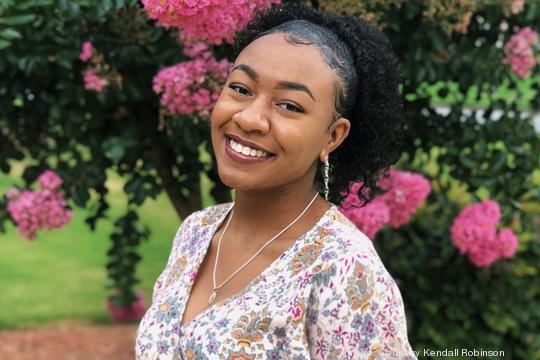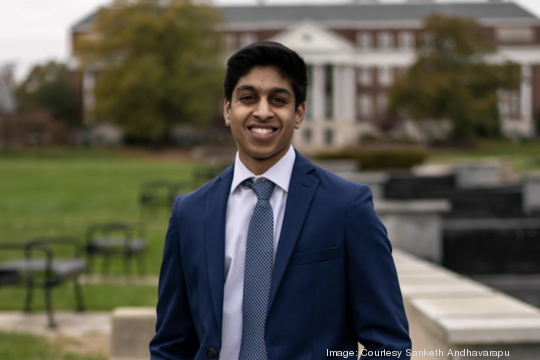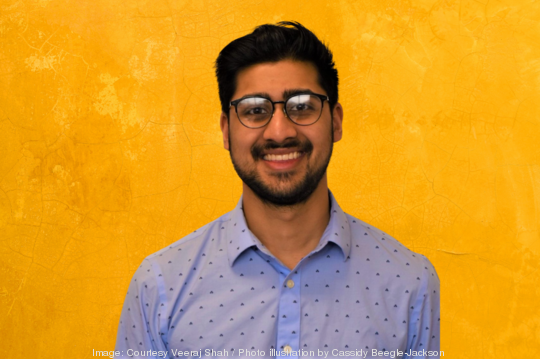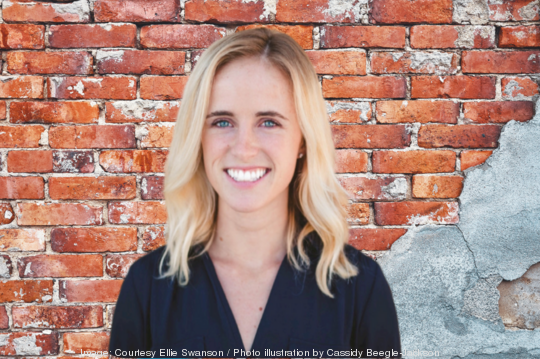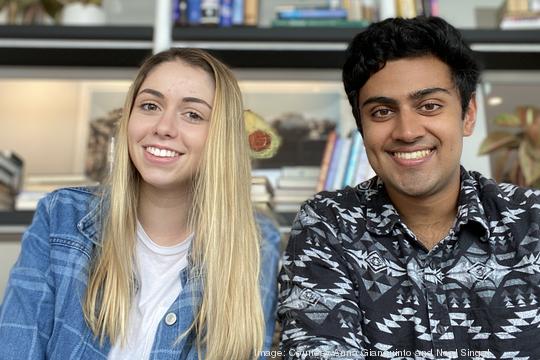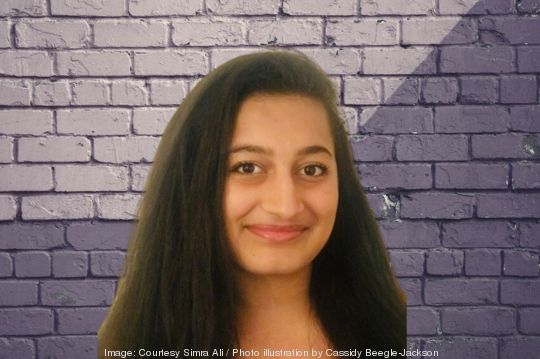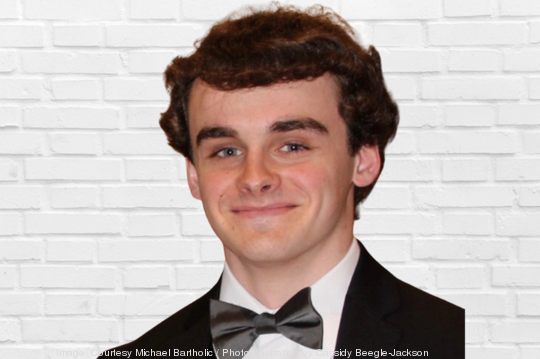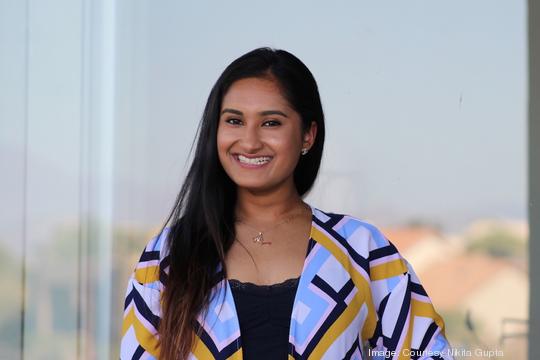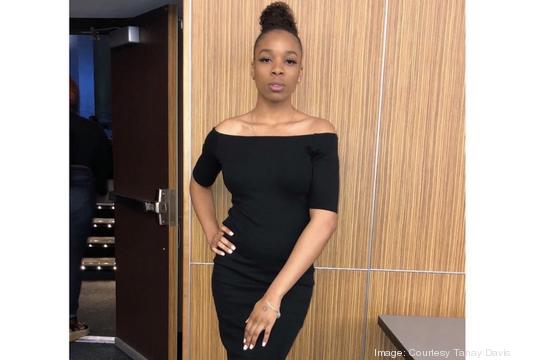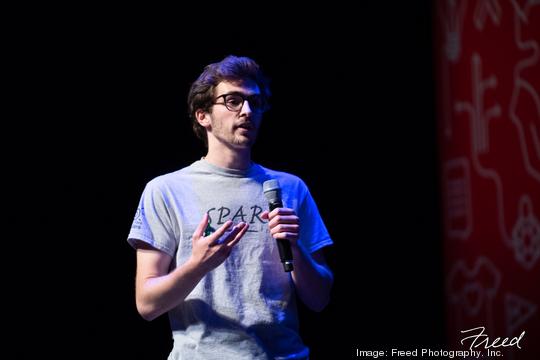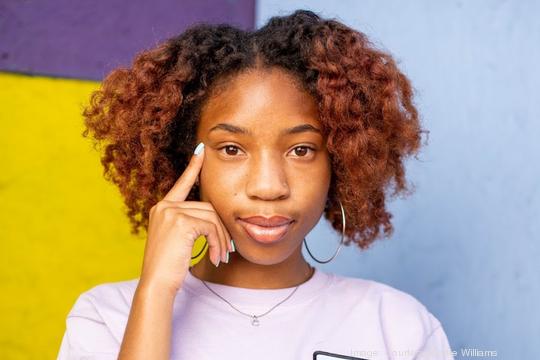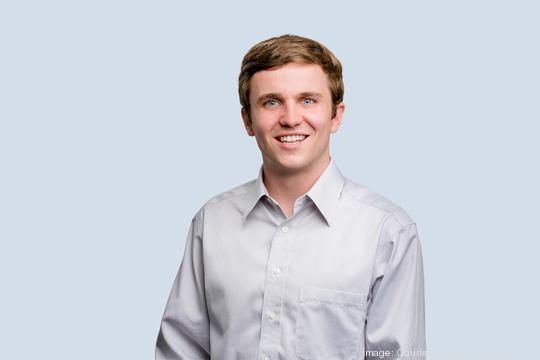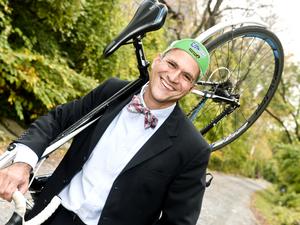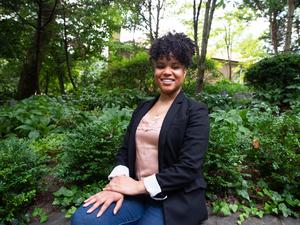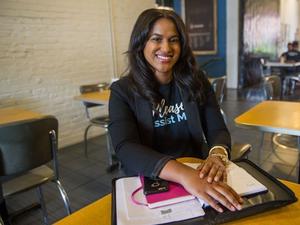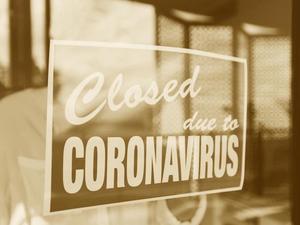Greater Washington doesn’t lack talent — and it starts young.
The D.C. region’s up-and-coming entrepreneurs, founders, innovators and inventors are already making their marks on the local startup and innovation economy. They’re the problem-solvers and newsmakers, creatives and rising stars. They’re students and recent graduates. They’re identifying problems across industries and attacking them.
Some are already garnering attention and others are flying under the radar. All are in their nascent stages with serious ambitions. And all intend to keep going. Big time.
We wanted to find them. So, we tapped local schools, incubators, accelerators, coworking spaces, business community leaders and our networks. We reached out through our newsletter and social media. We heard from many of you directly and received nominations through our portal.
We came out with an impressive roster through a competitive process. We whittled the list down to 25 people or teams. All have ties to the Washington region, though many are working remotely in their hometowns amid the coronavirus pandemic. All are ages 25 or younger, but you wouldn’t know it by their work.
Here are DC Inno’s 2020 25 Under 25:
Carleigh Berryman, 23: Founder and CEO, Viva Vita LLC
Carleigh Berryman wanted to empower older adults to live life to the fullest, so she created a D.C.-based virtual reality startup for retirement communities. Berryman launched Viva Vita while studying entrepreneurship and psychology at George Washington University, inspired by her experiences with her own grandmother. Now, she's working to help retirement communities engage their residents and improve their mental health and quality of life.
Her team is also conducting surveys to assess the company’s impact on seniors’ feelings of isolation, anxiety or depression. And last year, Viva Vita won $5,000 as a finalist in the GW New Venture Competition. Then the pandemic forced the business to pivot; it’s now working to bring to market a new product line that will deliver VR to seniors at scale, without exposing them to potential infection.
Jerron Hawkins, 22: Founder and CEO, Reach Foundation
Jerron Hawkins, now in Howard University’s School of Law, also earned his undergraduate degree in economics and political science from the D.C. university in 2019. That’s when he started the Reach Foundation, to create a positive culture for college students of color by providing scholarships, mentorship, health and wellness information, and opportunities to highlight the work of more diverse students on campus. The organization has given out more than $5,000 in scholarship money, raised through small donations; the largest was $1,000. The program runs two scholarship programs: $500 for two students each semester and $1,000 for one student for the year.
Hawkins, a former Obama White House mentee, isn’t stopping there. Reach is now fundraising to build a school in Senegal, running internship and mentorship programs, and breaking into other markets such as Los Angeles. In that West Coast city, his team served bagged lunches for 500 people this summer in partnership with another nonprofit, Lifting Our Voices. Reach sells its own merchandise and is planning to launch a $100,000 crowdfunding campaign for more scholarships and a brick-and-mortar location — a resource center and safe house — within the next couple of years. “It's a blessing that we've been able to sustain ourselves,” Hawkins said. “The scope of our impact has grown tremendously and therefore the need for resources has grown to be able to sustain the work that we’re doing.”
Audrey Awasom, 23: Founder and CEO, Noble Uprising Inc.
Audrey Awasom started Noble Uprising in 2018 to provide job opportunities and readiness training to women experiencing homelessness and underemployment. The Clarksburg company, now with a six-person team and five-member board, was born from a project Awasom launched during her sophomore year of college, two years prior: The One Heart Project, which provided career-readiness resources to more than 50 women in the Montgomery Avenue Women’s Center Shelter in Rockville. She’d landed partnerships with organizations like Athleta and Launch Workplaces, a congressional citation award from the office of Sen. Chris Van Hollen, D-Md., and a sponsorship from the Walmart Foundation — and reinforced the demand for such support.
Since its inception, the 2-year-old Noble Uprising has completed its pilot program and received grants and seed funding from private donors and organizations such as The Do Good Institute at the University of Maryland, Rothschild Capital Partners and the Women’s Business Enterprise National Council through their Student Entrepreneurship Program. Awasom — who graduated from UMd.’s Robert H. Smith School of Business with a bachelor’s in marketing — participated in the university’s inaugural Ladies First Founders cohort, the Dean’s Student Advisory Council and the Hillman Entrepreneurship Program. She continues to grow her nonprofit, providing women laptops, mentors, job-shadowing opportunities and other services, in addition to skills needed to be competitive in the market. She built community partnerships that gave care packages, professional clothing and hot meals to more than 1,000 women experiencing homelessness in Maryland. And she’s now planning for 2021 to meet the needs of a post-coronavirus environment.
Lucas Vining, 20: Founder and CEO, Ichosia Biotechnology
Ichosia Biotechnology is developing a method to mass-produce an enhanced red blood cell product called Erythrosyn — and Lucas Vining is spearheading that mission. With novel genetic engineering and stem cell technologies, the biotech wants to solve global blood supply crises, eliminate the need for blood donors and eliminate risks around contamination and transfusion. The company just crossed its one-year anniversary in mid-September, with $150,000 in funding raised to date from the GW New Venture Competition, the National Science Foundation and others.
Now Ichosia plans to raise about $500,000 in more funding for research and development through a combination of business competitions, Small Business Innovation Research grants and direct investments in a seed round, Vining said. The goal is to have a functioning product by mid-2021 and begin studying in animal models later next year, a step in the journey toward a Food and Drug Administration approval. Vining, a biology major at George Washington University, is also founder and executive chairman of Sa’akom Farms, a D.C. agriculture nonprofit aiming to drive economic growth in Cambodia.
Rebecca Cox, 19: Founder and CEO, Project Olas
Rebecca Cox started Project Olas this April, already raking in accolades, including $10,000 from the Georgetown Entrepreneurship challenge in its inaugural month, as well as the Social Innovation and Public Service Fund, Peace First Grant and the Improving the Human Condition Grant. The startup taps mothers in vulnerable Central American communities as Spanish tutors through the WhatsApp platform to teach one-on-one lessons — now for up to 50 enrolled students. The 22-person company has generated $13,000 in revenue since its spring launch, with $6,000 coming from the Guatemala City Garbage Dump community, where Project Olas has hired 15 moms and hopes to double that number in the fourth quarter.
The business is now in the process of launching sister nonprofit The Olas Foundation to oversee Club Olas, chapters for student learners on college and high school campuses. It’s also expanding to the classroom, already with partnerships at five schools including Georgetown University — where Cox is a sophomore in the School of Foreign Service — and looking to triple that number by spring 2021.
Jake Seaton, 25: Founder and CEO, Column PBC
Jake Seaton grew up around media, as a paperboy and reporter for The Manhattan Mercury, the local newspaper his family has owned and run for five generations in his hometown of Manhattan, Kansas. Seaton studied computer science and journalism at Harvard University, temporarily dropped out to help launch a startup called Quorum Analytics in D.C., then went back to double down on media courses and learn about public notices, to help the news business navigate the digital age.
That became Column, a public benefit corporation with a tech platform that modernizes the placement of public notices — from public meetings and foreclosures to legal proceedings and government updates — important for local newspapers that have long relied on them for revenue. Seaton’s team, advised by some prominent media vets and entrepreneurs, turned a prototype into a formal partnership with the Kansas Press Association this summer. Since the start of Covid-19, the venture-backed business has grown tenfold, signed on more partners including The Washington Post and set up its headquarters in the District.
Esha Vangara and Eric Patel, both 21: Co-founders, Edullo
College Park’s Edullo aims to offer personalized and affordable educational support to all students in a bid to level the educational playing field. The startup recently rolled out a peer-to-peer tutoring and mentoring platform and database of free, student-written articles. It’s quickly expanding, with the ultimate goal of creating a student-run, student-focused online community.
CEO Eric Patel — studying mechanical engineering, operations management and business analytics at the University of Maryland — has built a nearly 300,000-person following on TikTok for his educational content. And Esha Vangara, the company’s chief marketing officer — studying biology, psychology and economics at the University of Maryland, Baltimore County — is a former John Hopkins University researcher and founder of a nonprofit providing educational opportunities to girls in developing countries.
Cameron Ross, 21: Founder and President, Celise BioProducts
Cameron Ross started Alexandria biodegradable goods startup Celise BioProducts to serve the food service industry. Since its 2018 launch, the company’s compostable straws, cups and lids are gaining momentum in the marketplace as replacements for single-use plastic products. Celise will be rolling out custom straws for all District Taco locations by the end of the year, and they're now also in local Pupatella Pizza and Hank's Oyster Bar locations.
On the capital front, Ross is working to raise an undisclosed amount, expected by mid-November. Among other products, Celise is now developing a childproof compostable vial tube container — and it’s already seeing demand for Covid-19 testing kits, DNA ancestry kits that use plastic packaging, and the cannabis industry. That’s slated to hit the market by the end of the year. Ross, a DC Inno 2019 Inno on Fire winner and an American University student studying finance, started the company in the AU Center for Innovation’s Entrepreneurship Incubator.
Brittany Malcolm and Aluwet Deng, both 21: Co-founders, Sun Kissed Skincare LLC
Both seniors at Georgetown University’s McDonough School of Business, Brittany Malcolm and Aluwet Deng came up with the idea for their natural skin care company in April 2019. They’re now more than a year in, developing and hand-making products derived from their heritages: Malcolm, from the Bahamas, and Deng, originally from South Sudan before growing up in the U.S., were both “on a natural skin care journey,” they said, “looking for products that are gentle on our skin and help us feel confident in enhancing our natural beauty.”
Their business aims to meet that need, with a honey cleansing mask and hydrating facial serum among its products. They’ve bootstrapped the company up to this point, raising some funding through a GoFundMe campaign and receiving $2,000 from Georgetown’s Summer Launch program. Their success extends beyond the business; both have received research fellowships from Georgetown, now studying how to strengthen the economies of their home countries. If that weren't enough? Malcolm’s first novel, "Ibrida" — a story of guerrilla fighters who rise up against an oppressive regime — is set to publish in December.
Roopam Sharma, 25: Founder, Eyeluminati
Roopam Sharma wanted to help people with visual impairments. So he invented Manovue, a low-cost personal assistance system in the form of a wearable device, namely a glove and earpiece. The product uses artificial intelligence to help its user read printed text, replacing the need for Braille, printing for the blind that can be otherwise difficult to learn and expensive to access.
The business behind it, Eyeluminati, has garnered attention. Most recently, Entrepreneur Magazine named Sharma to its 35 Under 35 list, Forbes Asia listed him on its 30 Under 30 roster and Foreign Policy Magazine selected him as one of its top 100 Global Thinkers, among other accolades. Sharma, a Halcyon Incubator alum, is a first-generation college graduate with a bachelor’s in computer science and engineering from Manav Rachna University in India. His company has hired six new members in the last month, despite the challenges of navigating the pandemic, he said. And the team is targeting a December product launch locally.
Mia Van Allen, 22: Founder, Color of Music Collective
Mia Van Allen started D.C.-based Color of Music Collective this year to amplify the voices of people of color and LGBTQ individuals in the music industry. She started the initiative, with a website and concert series, in response to the lack of diversity she experienced in her own music business trajectory — and quickly gained traction.
Van Allen now runs the organization with Executive Director Marcella Desharnais and more than 80 volunteers, who also organize free panels to tackle issues of representation within the industry. She graduated this year from American University with a bachelor’s in public relations and strategic communication.
Gautam Chebrolu, 25: Co-founder and chief technology officer, Pilleve Inc.
Gautam Chebrolu co-founded Pilleve, a pill bottle that screens for signals of opioid abuse, with a product designed to help health care providers and insurance companies prevent addiction by using data to monitor prescription intake and connecting patients with support. The Georgetown company was founded by CEO Yossuf Albanawi, 26, and Chebrolu, its chief technology officer, both previous Forbes 30 Under 30 honorees.
Pilleve is advancing studies with several universities including Johns Hopkins University, raised $800,000 in its pre-seed round and aims to raise its seed round in the fourth quarter of this year. It’s also looking to expand from the D.C. region to the Northeast and Southeast in the coming months, hire at least two new employees for customer service and software development, and launch the next generation of its device this fall, “which will be compatible with an array of different medications, expanding its market,” Chebrolu said. He graduated from Duke University in 2017 with a degree in biomedical engineering, and electrical and computer engineering, with a certificate in innovation and entrepreneurship.
Kiara Robinson, 21: Founder and CEO, BoldXR Beauty
Kiara Robinson started her hair care company as a senior chemistry major at Howard University. The Chicago native set out to reach millions of women by creating affordable and all-natural products. She plans to double down on social media marketing in the coming months, while creating more products for her lavender and chia seed oil collection and hair care line. She’s running the business solo, but expects to hire a marketing and social media employee soon, she said.
Robinson has funded the business with her own savings and investments from family members “who will receive their return within five years,” she said, totaling about $6,000 in startup costs. She intends to fundraise in the future — but not in a typical venture capital round; rather, she’s planning to partner with a local business and bring customers in for a percentage of the profit.
Jonathan Maa, 25: Chief operating officer, Maxim Biomedical Inc.
Jonathan Maa is chief operating officer of Maxim Biomedical, his family’s medical diagnostics company in Rockville, where he works with his parents and two sisters. The company is developing two point-of-care tests for health care providers and organizations looking to screen for Covid-19. Maa and the team — 10 people in total — are working with the National Institutes of Health’s Rapid Acceleration of Diagnostics, or RADX, program. And it’s hoping to apply for approval from the Food and Drug Administration in October. By the end of this year, Maxim is shooting to make about 1.5 million tests per month, and to scale past 4 million to 5 million tests per month into next year. NIH is providing regulatory, commercial and manufacturing support, and helping to arrange more clinical testing.
Maxim is also hiring, lining up manufacturing partners, conceiving an at-home test for Covid-19 and, separately, working with the Centers for Disease Control and Prevention to develop a rapid HIV test for the national testing program. Maa earned his bachelor’s in public health science from the University of Maryland in 2018, but he’s been working with the business since 2012 — after growing up around it. His parents started the business in 2005 with a focus on testing for infectious diseases such as HIV. It’s self-funded and has no investors.
Emily Arnold, 22: Associate consultant, Franklin Advisory
Emily Arnold graduated from Georgetown University with a bachelor’s in English, environmental studies and entrepreneurship — and an appetite for the startup and investment world. She’s already worked on projects for the Greater Washington Partnership and the Korean Innovation Center in South Korea.
Then at the end of 2019, Arnold joined D.C. investment advisory firm Franklin Advisory, where she develops entrepreneurial curriculum, helps launch accelerators, supports companies raising capital and other projects. The firm provides coaching, entrepreneurial training, program development and fundraising support to companies. And Arnold hopes to eventually start a business of her own, with her eye on the sustainable food movement. “There’s something really powerful about aligning an economic model with a mission to create a business that moves a goal forward,” she said.
Kendall Robinson, 19: Founder, Kendall’s Art Collection and Love Rolls Inc.
Kendall Robinson, an Atlanta entrepreneur studying painting at Howard University, started her own art brand, Kendall’s Art Collection — recently selected as one of the IRL Creators for the HBCU Beats Black Futures Class of 2020. That was after conceiving and launching nonprofit Love Rolls Inc. at age 16, back in 2016 in her hometown, to collect and distribute toilet paper for homeless individuals and others in need. It started as a weeklong toilet paper drive and has evolved into a full-fledged business that has collected more than 325,000 rolls to date. Physical distribution is on pause amid Covid, but “as soon as we are able to safely distribute within the Covid-19 guidelines, my team and I will be right there to serve our communities once more,” she said.
Robinson’s entrepreneurial and artistic agenda doesn’t stop there. She’s separately illustrating a children’s book about the emotions associated with quarantine and staying home amid the pandemic. “Ultimately,” she said, “my goal is to use my platform to encourage others to follow their dreams and passions despite what anyone tells them.”
Sanketh Andhavarapu, 19; and Veeraj Shah, 21: Co-founders and co-CEOs, Vitalize Inc.
Sanketh Andhavarapu and Veeraj Shah lead Vitalize, a wellness app for clinicians founded on the eve of the pandemic in March 2020. For that venture, they’ve gone through the University of Maryland Dingman Center for Entrepreneurship’s Terp Startup summer accelerator program. After securing grant funding and developing its minimum viable product, the team is now starting initial beta testing with a group of 60 clinicians — aiming to prevent burnout for health care professionals with mindfulness modules, meditation tracks, an anonymous support community and other resources. At the University of Maryland, Andhavarapu is pursuing a degree in neuroeconomics, neurobiology and physiology, with a minor in innovation and entrepreneurship. There, Shah is working toward a bachelor’s in neurobiology and physiology, and health sciences, policy and technology.
Andhavarapu also leads Student Teachers Enriching Proficiency through Service, or STEPS — his other startup. That's a nonprofit in Ellicott City, Maryland, that provides affordable tutoring and college advice through volunteers, turning its profits into grants and scholarships to increase accessibility to STEM education for low-income students. Born in summer 2019, STEPS has raised nearly $10,000 from 20 clients and donated about $3,000 to benefit 100 kids in the form of Lego robotics kits, two laptops and a drone to a STEM nonprofit in inner-city Baltimore. It’s now working with Montgomery County and a handful of others across Maryland, projecting to raise $19,000 by the end of this year.
Ellie Swanson, 25: Senior associate of client success, LiveSafe Inc.
A year after joining Arlington-based LiveSafe, Ellie Swanson is already leaving her mark. There, she works with clients across industries — from manufacturing to sports to law firms — to solve their safety and security challenges. She’s also now taking on a new initiative, to increase collaboration internally across the company’s product, development and client success teams.
The 60-person company, led by President and CEO Carolyn Parent, offers a risk intelligence communications platform to clients such as Monumental Sports & Entertainment and Brookfield Properties. Most recently, it launched a mobile app to help employers remotely screen their employees for coronavirus risk. And Swanson came on board after serving as a product coordinator for St Louis IT firm Perficient. She earned her bachelor’s in neuroscience from Colorado College.
Anna Gianquinto, 20; Neal Singal, 20; Simra Ali, 20; Michael Bartholic, 21: Co-founders, Globally Unified Air Quality
D.C.-based Globally Unified Air Quality was brought to life by CEO Anna Gianquinto; Neal Singal, chief financial officer; Simra Ali, senior vice president of digital content; and Michael Bartholic, senior vice president of hardware. For their air quality-monitoring device, they received a grant from Schmidt Futures’ Coding it Forward, won $20,000 from the Leonsis Family Entrepreneurship competition, won the People’s Choice Award in the DMV 150 Pitch Event at George Mason University and, as students of Georgetown University, were recognized as its Undergraduate Student Entrepreneurs of the Year.
In a short period, the startup’s leaders have more than doubled the size of their company, now with more than 10 team members. They’re working on new initiatives such as mobile app development, while also engaging in initial discussions with the World Bank to support global air quality-monitoring initiatives, field testing for GUAQ’s next-generation device and preparing to pilot in D.C. Public Schools this October.
Nikita Gupta, 25: Co-founder and chief technology officer, Symba
Nikita Gupta launched Symba in D.C. to connect companies with remote interns. Gupta, the startup’s chief technology officer, teamed up with co-founder and CEO Ahva Sadeghi, 27, in 2017. They have since grown the business into a platform for companies and organizations to find the next generation of talent, after themselves going through Halycon Incubator, Techstars and Target Incubator programs. Symba closed its seed round this summer to hire marketing and engineering employees and expand its product pipeline. It’s shooting to raise a Series A round in October 2021.
Gupta, currently based in San Francisco, earned her degree in computer science and engineering from Cornell University, where she launched Girls Who Code in Ithaca, New York. She’s worked for other startups as a software engineer, and had gigs at Apple, Bank of America and Merrill Lynch. She and Sadeghi were recently named to Forbes 30 Under 30.
Amani Phipps, 24: Lead venture fellow, Score 3 Ventures
Amani Phipps was a year out of college and working with the Congressional Black Caucus Foundation on Capitol Hill when he came across Score 3 Ventures, a D.C. group focused on entrepreneurial inclusion with a program for aspiring investors. He’s since worked at D.C.’s New Dominion Angels and RockCreek, helping general partners of color raise funds, while continuing to support Score 3 as an unpaid volunteer handling hiring and establishing partnerships.
The ultimate goal is bringing in more fellows of color to follow in his footsteps and, eventually, become investors themselves. Still, Phipps continues to face barriers himself as a Black investor, he said. That’s why education and awareness are so critical. He’s working to foster an understanding that hiring diverse investors and putting money into organizations that support them are also important. “You have to look at it as a newfound culture and really, as an opportunity,” he said. “There are amazing founders that are being missed out on.” Phipps earned his bachelor's of business management from Coastal Carolina University in 2018 and is pursuing his master’s in finance from Georgetown University.
Tanay Davis, 21: Founder, Co-Z Clothing Brand
A senior marketing major at Howard University from Harlem, New York, Tanay Davis is founder of Co-Z Clothing Brand, an affordable streetwear fashion brand that aims to give back to underserved and underprivileged communities. This year, the company is working to increase market share by widening its customer base. That’s while releasing sweatsuits, T-shirts, trucker hats and protective masks, from which it donated 30% of profits to the NAACP Legal Defense and Education Fund.
Now the business is working toward launching new embroidered apparel, as well as an email marketing campaign called Co-Z Coverage. “We hope to inspire men and women of all ages, colors, shapes and sizes to embrace their individuality and encourage them to Stay Co-Z and comfortable in their own skin,” Davis said.
Anthony Sartori, 24: Founder and executive director, Evolving Minds
Anthony Sartori’s growing mental health nonprofit is young, but already maturing fast. He launched Evolving Minds in 2019 after serving as mindfulness director for Cabin John-based behavioral health organization Potomac Pathways. And now, he’s leading the push to scale Mindful Living for Professionals — its eight-week professional development program to improve psychological well-being and decrease symptoms of depression, anxiety and stress — which has already trained 77 Baltimore City Public School educators and has another 90 lined up for the fall.
Sartori is simultaneously preparing to launch two new programs: A Mindful Leader Certificate Program and Radical Resilience, an online mindfulness and resilience training. He’s readying to pilot the Mindful Leader Certificate training with the Global Public Health Scholars program at the University of Maryland. And he’s about to launch a 30-day $30,000 fundraising campaign in November. Sartori also started mental health advocacy and research group Scholars Promoting and Revitalizing Care, or SPARC, at UMd. There, he earned his bachelor’s in psychology in 2018.
Clarke Williams and Naomi Lilly, both 22: Co-founders, NAL Media
Naomi Lilly and Clarke Williams are the minds behind NAL Media, an online networking site that connects underrepresented creative professionals with each other and media companies looking for diverse talent. The platform went live this year, since expanding its partnerships with college and universities, media conglomerates and other players in creative industries.
The startup is shooting to raise $80,000 in funding this year, “which we are confident will assist us in expanding our team and continuing to optimize our tech solution to be effective and accessible,” said Williams, its chief operating officer. She’s from Baltimore, a recent graduate of Howard University with a degree in political science and Spanish. And Lilly, its CEO, graduated from Duke University with a degree in African-American studies.
Bryson Hearne, 25: Investment Analyst, Village Capital
At Village Capital in D.C., Bryson Hearne identifies overlooked entrepreneurs and helps prepare their businesses for the investment stage. He’s now working with the firm’s Finance Forward accelerator program, a partnership with PayPal and MetLife, with 11 diverse fintech ventures focused on helping low- and middle-income individuals improve their financial health.
His local career follows a stint at venture capital firm IGNIA Partners in Mexico City, where he worked with Latin American entrepreneurs. Hearne holds a bachelor’s degree in finance from the University of Texas, a master’s in global commerce from the University of Virginia and a master’s in global strategic management from Esade Business and Law School in Barcelona, Spain.
